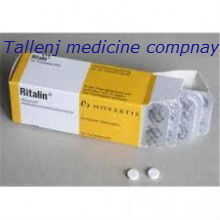 Loading... Please wait...
Loading... Please wait...- Home
- Anti Anxiety
- Ritalin 10mg by Novartis x 1 Strip
Product Description
Ri...
italin (methylphenidate) is a central nervous system stimulant. It affects chemicals in the brain and nerves that contribute to hyperactivity and impulse control.
Ritalin is used to treat attention deficit disorder (ADD) and attention deficit hyperactivity disorder (ADHD). Ritalin is also used in the treatment of a sleep disorder called narcolepsy (an uncontrollable desire to sleep). When given for attention deficit disorders, Ritalin should be an integral part of a total treatment program that may include counseling or other therapies.
Ritalin may also be used for purposes not listed in this medication guide.
Important information about Ritalin
Do not use Ritalin if you have used an MAO inhibitor such as furazolidone (Furoxone), isocarboxazid (Marplan), phenelzine (Nardil), rasagiline (Azilect), selegiline (Eldepryl, Emsam), or tranylcypromine (Parnate) within the past 14 days. Serious, life-threatening side effects can occur if you use Ritalin before the MAO inhibitor has cleared from your body. Do not use this medication if you are allergic to Ritalin or if you have glaucoma, overactive thyroid, severe high blood pressure, tics or Tourette's syndrome, angina, heart failure, heart rhythm disorder, recent heart attack, a hereditary condition such as fructose intolerance, glucose-galactose malabsorption, or sucrase-isomaltase deficiency, or severe anxiety, tension, or agitation.
Ritalin may be habit-forming and should be used only by the person it was
Ritalin may be habit-forming and should be used only by the person it was prescribed for. Never share Ritalin with another person, especially someone with a history of drug abuse or addiction. Keep the medication in a place where others cannot get to
Before taking Ritalin
Do not take Ritalin if you have used an MAO inhibitor such as furazolidone (Furoxone), isocarboxazid (Marplan), phenelzine (Nardil), rasagiline (Azilect), selegiline (Eldepryl, Emsam), or tranylcypromine (Parnate) within the past 14 days. Serious, life-threatening side effects can occur if you use Ritalin before the MAO inhibitor has cleared from your body.
Do not use Ritalin if you are allergic to methylphenidate or if you have:
-
glaucoma;
-
overactive thyroid;
-
severe high blood pressure;
-
angina (chest pain), heart failure, heart rhythm disorder, or recent heart attack;
Some stimulants have caused sudden death in children and adolescents with serious heart problems or congenital heart defects. Tell your doctor if you have a congenital heart defect.
If you have any of these other conditions, your doctor may need to adjust the dose of Ritalin or order special tests:
-
a congenital heart defect;
-
a personal or family history of mental illness, psychotic disorder, bipolar illness, depression, or suicide attempt;
-
epilepsy or other seizure disorder; or
-
a history of drug or alcohol addiction.
FDA pregnancy category C. It is not known whether Ritalin will harm an unborn baby. Tell your doctor if you are pregnant or plan to become pregnant while using this medication. It is not known whether methylphenidate passes into breast milk or if it could harm a nursing baby. Do not use Ritalin without telling your doctor if you are breast-feeding a baby.
Long-term use of Ritalin can slow a child's growth. Tell your doctor if the child using this medication is not growing or gaining weight properly.
Do not give Ritalin to a child younger than 6 years old without the advice of a doctor.
How should I take Ritalin?
Take Ritalin exactly as prescribed by your doctor. Do not take in larger or smaller amounts or for longer than recommended. Follow the directions on your prescription label.
Take Ritalin tablets at least 30 to 45 minutes before a meal. The extended-release forms of Ritalin can be taken with or without food.
-
-
a personal or family history of tics (muscle twitches) or Tourette's syndrome;
-
severe anxiety, tension, or agitation (methylphenidate can make these symptoms worse); or
-
a hereditary condition such as fructose intolerance, glucose-galactose malabsorption, or sucrase-isomaltase insufficiency.
Some stimulants have caused sudden death in children and adolescents with serious heart problems or congenital heart defects. Tel
















